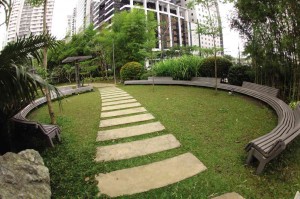
The Mind Museum is one of the few establishments in the country to receive a LEED Gold Certification.
MANILA, Philippines—They persevered and was given the “Gold.”
The efforts of the proponents behind The Mind Museum, the country’s first world-class science center, was recently recognized with the awarding of the “LEED Gold certification” by the US Green Building Council and verified by the Green Building Certification Institute.
This means that more than just being a showroom for numerous scientific artifacts and interactive exhibits, The Mind Museum has met the stringent, globally accepted design and construction practices that increase profitability while reducing the negative environmental impacts of buildings and improving occupant health and well-being.
And indeed, it is a tremendous feat, as The Mind Museum is one of the first few establishments in the country to receive a LEED Gold Certification, a league dominated mostly by players from the real estate industry.
“We got the Gold! Saying that brings me unmatched pleasure quite different from what it means in a sports competition. It is because this time, nature won which is the ultimate victory because it means we all won,” says Mind Museum managing director Manny Blas II during the recently held LEED recognition ceremony.
“We did not just make a really cool world-class museum but rather we made a science museum that was very careful to consider in its design and construction, the impact it would have on the balance of natural life and what sustains it. In the end, what we built is a science museum that not just cared for the pleasure of understanding nature but for nature herself,” Blas explains.
The Mind Museum, which was built by more than 300 men and women led by Ayala Land Inc. and guided by LEED professionals from Langdon and Seah Philippines, sits on a 12,500-square meter prime lot of the JY Campos Park along 3rd Avenue in Bonifacio Global City. It was conceived in 2006 by the Bonifacio Art Foundation Inc. in a bid to provide the public a perfect avenue to better understand and appreciate the amazing world of science.
Notable is The Mind Museum’s sleek futuristic building design by Ed Calma and his team of architects, which boasts of environment-friendly features that conserve water and energy, reduce gas emissions, and improve indoor air quality, among others.
“It is important for us to build and create something that is sustainable because first and foremost we are a science museum, and science already told us that we cannot keep on building the way we have been building and not adversely impact the planet. So for us to be genuine to our being a science museum, I think we had to respond to these findings of science,” Blas further says.
“By creating a sustainable structure we can show others that it can be done, that things can be achieved. Imagine, for us who rely on donations, we were able to do it—what more to those who have the money? The other thing is that when we were just getting donors for the science museum, we already told them that we wanted this to be environmentally sustainable, financially sustainable and that we were going to go for a LEED certification and they also liked the idea,” he explains.
The most complete fossil replica of the 12-foot tall Tyrannosaurus Rex is displayed inside The Mind Museum. ANDREW TADALAN
“I hope The Mind Museum inspires, and make people see the value of building something that is sustainable and at the same time motivate others to follow suit,” Blas adds.
At present, The Mind Museum has proven to be an interesting yet educational destination for the young and old alike.
“The Mind Museum is good for both adults and kids, as they will learn a lot here. You see, there is always something that people are curious about and in here, they will get the answer to that curiosity,” Blas says.
The Mind Museum features five galleries within its two levels—The Story of the Universe: Its Beginning and Majesty; The Story of the Earth: Its Story Across the Breadth of Time; The Story of Life: The Exuberant Varieties of Life; The Story of the Atom: The Strange World of the Very Small; and The Story of Technology: The Showcase of Human Ingenuity.
It also boasts of an outdoor “Science-in-the-Park,” where visitors can experience playful science through four-themed pockets: Music, Math, Living and Water. Other educational offerings include facilities such as an auditorium, laboratory and classrooms for educational workshops. The Mind Museum is open from Tuesday to Sunday from 9 a.m. to 6 p.m. Operation hours are extended until 9 p.m. every Saturday.
Tickets, which are good for a three-hour stay at the Mind Museum, are priced at P600 for adults; P450 for children and students up to college; and P150 for public school students and teachers. Children two-feet and below can come in for free.